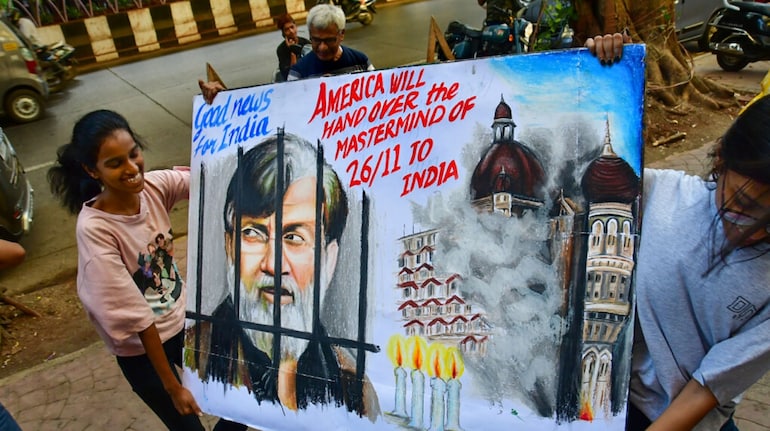
New York/Washington: The United States reaffirmed its longstanding support for India’s pursuit of justice in the 26/11 Mumbai terror attacks, following the extradition of Tahawwur Hussain Rana—Pakistani-Canadian national and a key accused in the 2008 carnage—to India.
On April 9, U.S. authorities officially handed over 64-year-old Rana to Indian officials, marking a crucial moment in the global fight against terrorism. “Rana has been extradited to India to face justice for his role in planning the horrific 2008 Mumbai terrorist attacks,” said Tammy Bruce, spokesperson for the U.S. Department of State, during a press briefing on Thursday.
Bruce emphasized that the U.S. has consistently stood with India in its efforts to hold the perpetrators accountable. She recalled the scale and horror of the attacks, in which 166 people—including six Americans—lost their lives. “Many may not remember how tragic and horrifying these attacks were. I urge people to learn about them and understand the gravity of the situation,” she said.
Speaking to PTI, a U.S. Department of Justice spokesperson described Rana’s extradition as “a critical step toward seeking justice” for victims of the attacks carried out by Lashkar-e-Taiba (LeT) terrorists. The DOJ confirmed that Rana will face trial in India on 10 criminal charges tied to his alleged involvement in the 26/11 operation.
A team from India’s National Investigation Agency (NIA), which coordinated closely with U.S. authorities, accompanied Rana on his flight back. The Indian delegation had travelled to the U.S. to complete the necessary legal formalities and paperwork.
This diplomatic and legal breakthrough comes just days after the U.S. Supreme Court denied Rana’s final appeal to avoid extradition. His emergency plea, submitted on February 27, 2025, claimed that extradition to India posed a risk of torture due to his identity as a Pakistani Muslim and his fragile health condition.
Initially, the application was reviewed and rejected by Justice Elena Kagan. Rana then refiled the application and directed it to Chief Justice John Roberts. The Supreme Court reviewed the case in conference on April 4 and formally denied the application on April 7.
In his petition, Rana had claimed that his deteriorating health—including multiple heart attacks, Parkinson’s disease with cognitive decline, suspected bladder cancer, chronic kidney disease, and asthma—meant that extradition would equate to a “de facto” death sentence.
Rana, who holds Canadian citizenship, is known to have worked closely with Pakistani-American terrorist David Coleman Headley—one of the masterminds behind the 26/11 Mumbai attacks.




